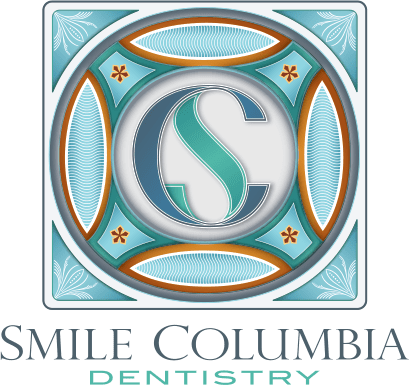Recurring headaches can be frustrating, exhausting, and disruptive. But many people don’t realize that their head pain may originate from an unexpected source—their jaw. At Smile Columbia Dentistry, we are experts in diagnosing and treating TMJ headaches, helping patients throughout Columbia, SC, finally find meaningful, lasting relief.
How TMJ Dysfunction Triggers Headaches
The temporomandibular joint (TMJ) connects your jaw to your skull and plays a vital role in speaking, chewing, and facial movement. When the joint is out of alignment or strained, it can lead to tension and inflammation in the surrounding muscles and nerves. This tension can radiate into the temples, forehead, neck, and shoulders, presenting as a chronic headache.
Unlike typical headaches, TMJ headaches are often linked to jaw movement and may be accompanied by clicking, popping, or soreness in the jaw itself.
Types of Headaches Linked to TMJ Disorders
Not all headaches are created equal, and identifying the root cause can help determine the right course of treatment. TMJ disorders are commonly associated with two types of headaches:
Tension-Type Headaches
These are the most common TMJ headaches. They are typically characterized by a dull, aching pain and a feeling of pressure across the forehead or temples. Tension headaches often develop gradually and may worsen with jaw use, stress, or poor posture.
Migraine-Like Headaches
In some cases, TMJ dysfunction can exacerbate or even mimic migraine symptoms. While true migraines have neurological origins, TMJ-triggered migraines may present with throbbing pain, sensitivity to light, and even nausea. Addressing TMJ dysfunction can help reduce the frequency and intensity of these episodes.
Red Flags: When Your Headache Might Be TMJ-Related
TMJ headaches can be easy to overlook or misdiagnose. If you experience any of the following symptoms alongside head pain, it may be time to explore TMJ treatment:
- Jaw pain, clicking, or locking
- Stiffness in the neck and shoulders
- Headaches that worsen in the morning or after chewing
- Earaches or a sensation of fullness in the ears
- Worn, chipped, or flattened teeth from grinding
If these signs sound familiar, you may be suffering from a temporomandibular disorder (TMD)—and relief could be closer than you think.
Neuromuscular Approach to TMJ Diagnosis
We go beyond surface-level symptom management. Dr. Adam Hahn, an LVI-trained neuromuscular dentist from Columbia, SC, uses advanced diagnostics to uncover the root cause of your TMJ headaches.
Your evaluation may include:
- 3D digital imaging to visualize the joint structure
- Jaw tracking and muscle EMG scans to assess movement and muscle strain
- Bite analysis to determine if misalignment is contributing to symptoms
- TENS (Transcutaneous Electrical Neural Stimulation) to relax jaw muscles for an accurate bite position
This comprehensive diagnostic approach allows us to create a personalized treatment plan that restores jaw balance and alleviates headache triggers at the source.
Treatment Options for TMJ Headaches
Once we’ve identified the specific nature of your TMJ disorder, we’ll recommend a tailored treatment strategy. Our dentist focuses on conservative, noninvasive therapies that offer long-term results.
Bite Splint Therapy
A custom bite splint gently repositions the jaw to a more balanced, relaxed position. This reduces muscle tension and nerve compression, helping prevent the chain reaction that leads to TMJ headaches. Splints are worn at night or during the day, depending on your needs.
Neuromuscular Orthotics
For patients with significant misalignment, a neuromuscular orthotic appliance can be worn to retrain the jaw into its optimal position. These orthotics are fabricated based on precise neuromuscular measurements and are often used as part of a Phase II treatment plan.
Physical Therapy and Posture Coaching
Since TMJ disorders often affect the neck, shoulders, and upper back, physical therapy may be incorporated to improve posture and muscle coordination. We provide guidance on ergonomic habits that reduce daily strain on the jaw.
Long-Term Phase II TMJ Treatment
For patients needing a more permanent solution, we offer restorative treatments—such as dental reconstruction—to maintain the ideal jaw position established in Phase I therapy.
Home Strategies to Manage TMJ Headaches Between Visits
While professional care is essential for correcting TMJ dysfunction, simple home strategies can support your treatment and reduce flare-ups:
- Apply moist heat or cold packs to the jaw and temples
- Avoid hard, chewy, or crunchy foods
- Practice stress-reduction techniques such as meditation or deep breathing
- Maintain good posture, especially when using a phone or computer
- Use jaw exercises recommended by your dental provider
These habits help minimize muscle strain and inflammation, offering day-to-day relief while your treatment progresses.
Why Columbia Patients Choose Our Dentist
Patients across Columbia, SC, trust Dr. Adam Hahn because of our advanced technology, holistic philosophy, and focus on long-term results. Dr. Hahn’s training at the Las Vegas Institute for Advanced Dental Studies (LVI) equips him with the tools and knowledge to treat complex TMJ cases with precision and compassion.
From your first consultation through follow-up care, our team is committed to helping you regain control over your health, comfort, and daily life.
Start Your Journey to Headache Relief Today
If you’ve been living with chronic headaches and haven’t found answers, your jaw may hold the key. At Smile Columbia Dentistry, we offer expert TMJ evaluations and personalized care plans designed to eliminate pain at its source.
Contact our Columbia, SC office at (803) 781-9090 today or click the button below to schedule your TMJ consultation. Let us help you move from daily discomfort to confident, pain-free living.





